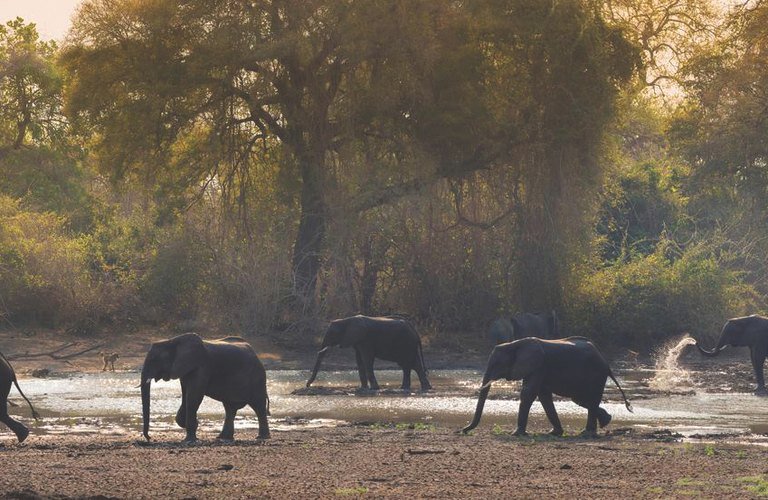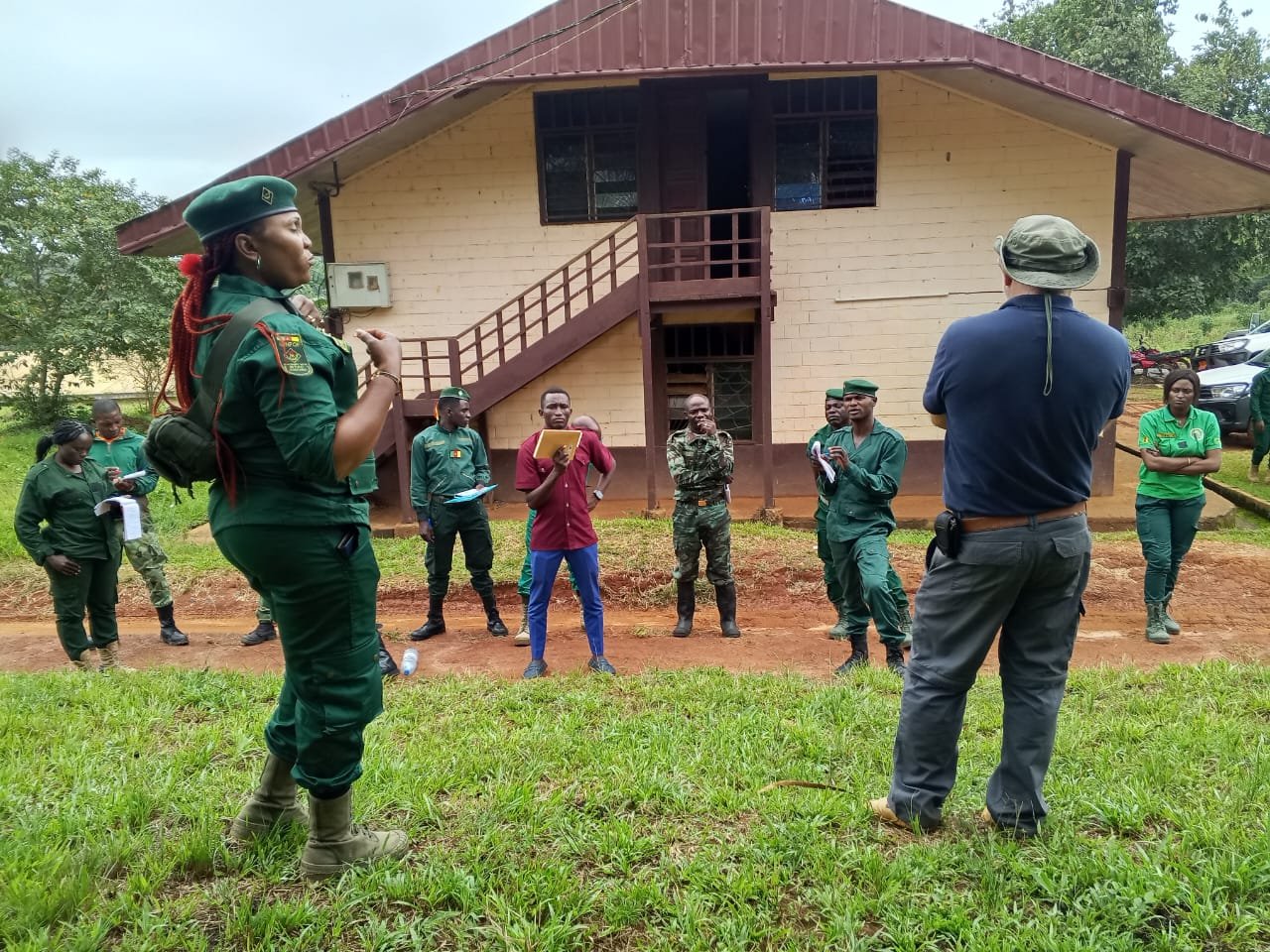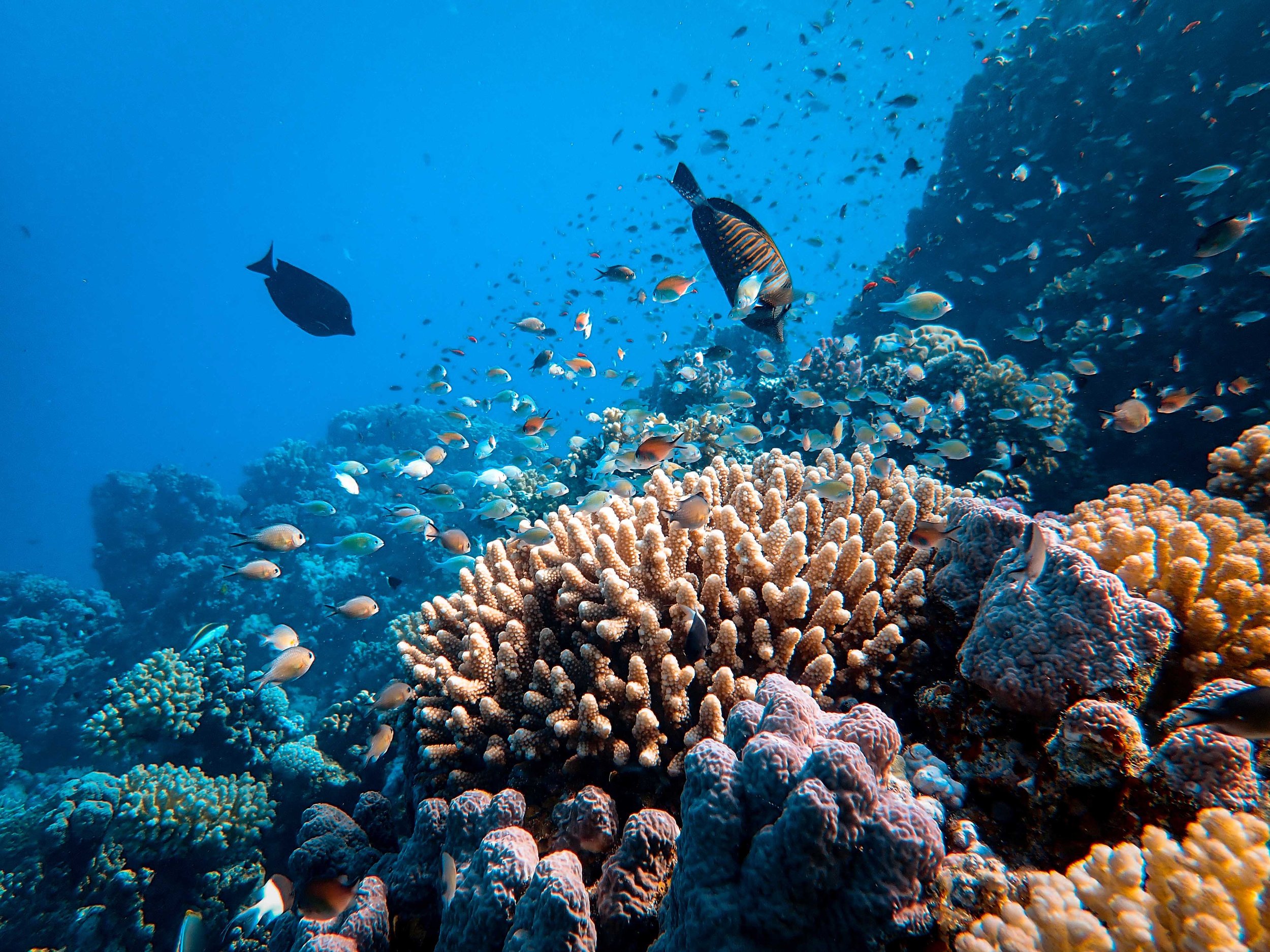GC News and Progress
Explore our Upcoming Events Here
Radars Against Illegal Fishing: How the technology-community partnership works to protect biodiversity in Baja California Sur
On the east coast of Baja California Sur, a radar system seeks to curb illegal fishing and poaching of marine species that impact national parks and fishing refuges. In this region of northwestern Mexico, a partnership between organizations, community guards, park rangers, and the government patrols and monitors the area using technological tools such as drones and long-range surveillance cameras.
GC’s Partners in Darien, Panama Fight Against Gold Mining
The National Border Service of Panama (SENAFRONT), the Public Ministry, and the Ministry of Environment (MiAMBIENTE) dismantled an illegal mining network in the Mangle River, in Alto Tuira, within Darién National Park, near the border between Panama and Colombia.
GC Funds Kerenni Wildlife Protection Initiative Field Training—W1C Report 2024
Wildlife 1 Conservancy, a Thai-registered NGO, has been involved in several sensitive wildlife conservation projects across Asia since 2010. Our objective is to protect biodiversity and counter illegal wildlife trade and trafficking through strengthening the capacity and capabilities of agencies and institutions tasked with this purpose.
Belize Maya Forest Trust’s Annual Progress Report for 2025
The Belize Maya Forest Trust (BMFT) is dedicated to preserving this critical ecosystem through monitoring, enforcement, community engagement, and sustainable practices. Global Conservation’s support has enabled BMFT to enhance its capabilities through infrastructure upgrades, equipment acquisition, and expanded patrol efforts.
Global Conservation Funds Fighting Fires with New Technology in Costa Rica
Guanacaste Conservation Area in Costa Rica is leading the way in environmental monitoring and response to threats like illegal hunting and forest fires. They have installed smart camera surveillance, a state-of-the-art monitoring technology, which is already helping to protect ecosystems.
GC Committed to a New 3-Year Global Park Defense Program to Support Komodo Island and Dragons
GC commits to a new 3-Year Global Park Defense Program and also highlights the rangers' success and goals for the future.
GC Partner in Marine Protection featured in new BBC Documentary
The Citizen Observers Network (ROC), a Mexican organization based in La Paz, is the featured topic in the Mexico chapter of the new documentary series Guardians, a production of Prince William's United for Wildlife and the Royal Foundation. This recognition places Mexico on the international map of organized citizen monitoring, highlighting a locally built model with a technical, community-based, scientific, and replicable approach.
Turneffe Atoll—Progress in Marine Protection 2025 First Quarter
UPDATE: A total of ten infractions were encountered from January to March 2025; these infractions included undersized product, illegal development, and found property.
Corcovado, Costa Rica—2025 First Quarter Report
This report summarizes key conservation efforts implemented by Global Conservation's Global Park Defense (GPD) in collaboration with SINAC across Costa Rica’s protected areas, including Corcovado National Park (PNC), Guanacaste Conservation Area (ACG), La Amistad International Park (PILA), and Golfo Dulce Forest Reserve (RFGD), during the first quarter of 2025.
Conservation Victory: No Elephants Poached In Mana Pools National Park for SIX Years
With our support, the Bushlife Conservancy has been working to curb poaching. Thanks to this hard work, they recently announced that Mana Pools National Park has been free of any elephant poaching incidents for three years.
GC Meets Ukraine’s Directors of Regional Administration and Natural Resources
Notably, the organization is already actively working in Ukraine, supporting, among others, the Carpathian National Nature Park and the Verkhovyna National Nature Park.
2025 Project Update: Enhancing Law Enforcement Responses to Combat International Wildlife Trafficking in Cameroon
In partnership with the Zoological Society of London (ZSL), two comprehensive five-day training sessions were conducted in Lomie for rangers from the Dja and Ngoyla Reserves. These sessions aimed to strengthen both the operational and strategic capabilities of frontline personnel involved in anti-poaching and wildlife protection efforts.
New GC Marine Radar Captures Six Illegal Boats in First Month in Coiba National Marine Park, Panama
The Coiba Island M2 Radar, developed by GC/ProtectedSeas, continues to detect illegal fishing activities within the protected waters of Coiba.
GC Annual Report: Racha National Park 2024
The protected areas of Georgia are designated regions that have been established to conserve the country’s unique natural resources, biodiversity, and ecosystems. These areas play a critical role in maintaining ecological balance, preserving wildlife habitats, and safeguarding plant species, especially those that are endangered or at risk.
GC Event—Secretary Wade Crowfoot of California and Minister Juan Carlos Navarro of Panama Detail Solutions on Protecting Our Planet
On May 14th, nearly one hundred philanthropists and environmentalists gathered at The Olympic Club in San Francisco to support Global Conservation and participate in a distinguished panel discussion featuring global leaders in park and wildlife protection, including ABC News’ Bob Woodruff, Martina Sasso, founder of Por El Mar, Secretary Wade Crowfoot of California, and Minister Juan Carlos Navarro of Panama.
GC 2024 Progress Report: DaMaI Rainforest, Heart of Borneo
Global Conservation’s Executive Director, Jeff Morgan, returned to the DaMaI Rainforest to review progress in deploying Global Park Defense across over one million hectares against illegal wildlife poaching, hunting, and illegal logging.
GC Mission to Protect Darien National Park
Last week, Global Conservation conducted a mission to Darien National Park to assess the progress made over the past two years and to plan for enhanced protection of forests and wildlife in 2025-26.
GC’s LAST LANDS Nominated for TWO Emmys
It’s an honor to be nominated for not one but two awards! The winners will be announced in two ceremonies on June 25 and June 26.
GC Strengthens Wildlife Protection in Bardia – Banke Complex Nepal
This project consists of the first 6 months of activities designed for the two years of project duration. The Bardia – Banke Complex (BBC) in Nepal is a significant conservation area that includes the Bardia National Park (BNP) and Banke National Park (BaNP), along with their buffer zones. This complex is crucial habitat for many flagship endangered species, including the Bengal tiger, Asian elephant, Greater One-horned rhinoceros, Swamp deer and gharial.
GC’s Last Lands is a Webby Winner!
ABC/Hulu won only four awards — and the LAST LANDS series created by Executive Director Jeff Morgan is one of them! This year, there were over 13,000 entries, and Global Conservation’s work around the world has not gone unnoticed.
Join Us
Become an integral part of our mission and make an impact on your world today. Click below to find out how you can make a difference.





















